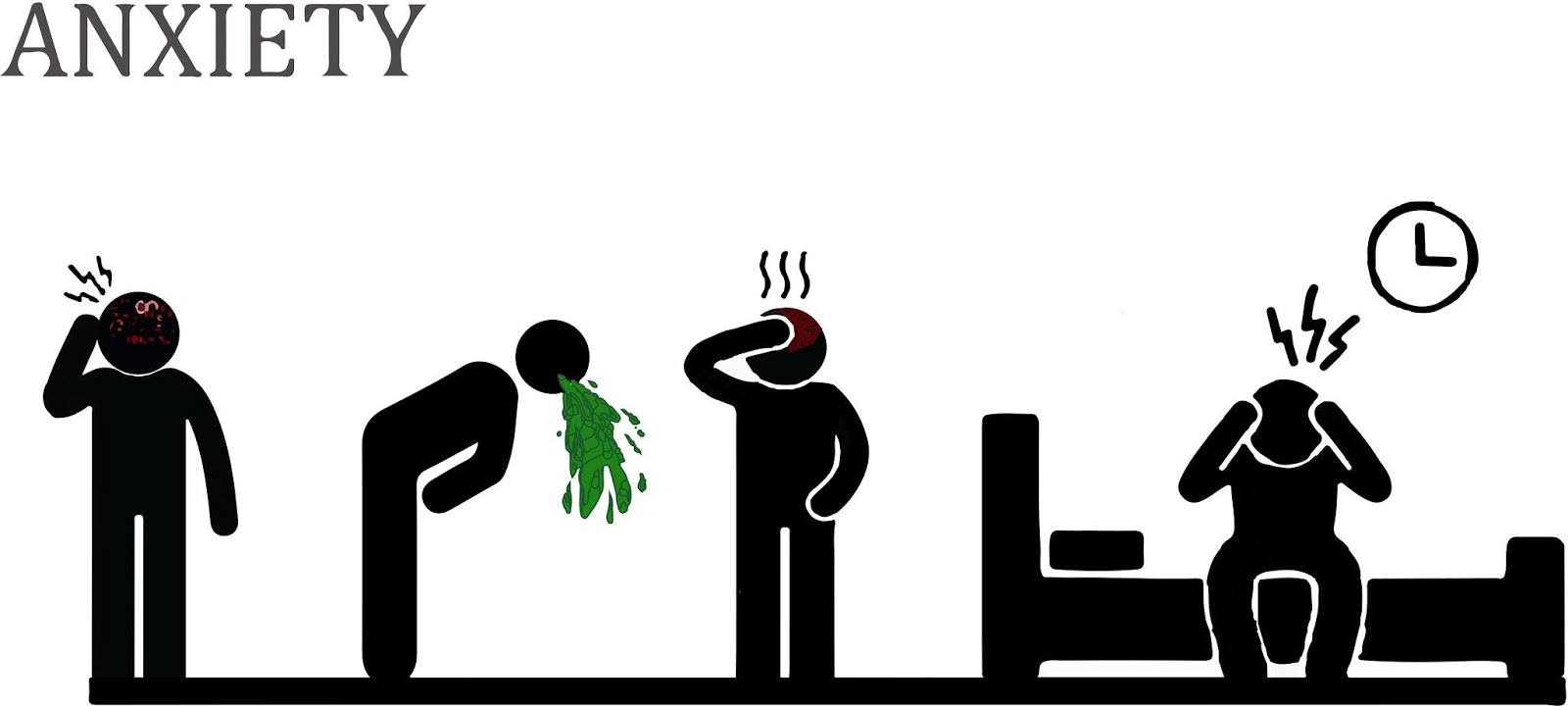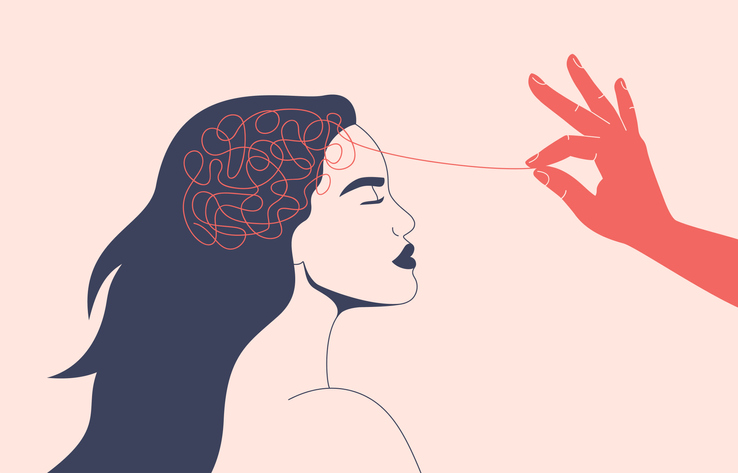Key Takeaways
- At low doses, THC may help anxiety, but at higher ones, it can make it worse.
- CBD and CBG may help, along with terpenes like caryophyllene, pinene, linalool, and limonene.
- Kush strains like OG Kush and Bubba Kush are great options. So are CBD-rich strains like ACDC.
Cannabis sativa is one of the most diverse plants on the planet, with experts suggesting that over 700 cultivars exist. Farmers around the world are continuously tweaking strain genetics to crossbreed new varieties, allowing medical cannabis consumers to choose from a wider field of strains with unique therapeutic characteristics. So, what are the best strains for anxiety?
Different strains deliver specific mental and physical effects for consumers, proving the importance of finding suitable strain characteristics, such as cannabinoid composition and the best terpenes for anxiety.
Can Weed Help with Anxiety?
Anxiety is a commonly reported mental health condition in the U.S. that over 40 million people suffer from. Unfortunately, the majority of legal medical cannabis states still do not feature anxiety on their list of qualifying conditions.
While cannabis cannot be considered a cure for anxiety, specific varieties of the plant may provide a sense of well-being and cerebral calmness for patients. Research notes that cannabis can have anti-anxiety and anxiety-inducing effects. This is a result of cannabis’ active compounds interacting with the CB1 receptor on cortical glutamatergic terminals. In low doses, THC may promote anxiety relief; when cannabis is consumed in high doses (especially THC-rich cannabis), it may lead to increased anxiousness.1
Interestingly, a prominent terpene found in the majority of available cannabis cultivars, caryophyllene, has demonstrated anti-anxiety potential through its interaction with the CB2 receptors.2
In addition to terpenes, minor cannabinoids like CBD and CBG may also be beneficial for anxiety relief. One study published investigated the benefits of cannabigerol (CBG). Among the many conditions that patients used CBG to treat, anxiety was the most commonly reported condition at 51.2%.3
Best Terpenes for Anxiety

Choosing indica or sativa for anxiety goes deeper than just picking a strain based off of their label. The various terpene concentrations contained in cannabis are also thought to influence its overall effects and potential benefits, so pay close attention to the quantity and composition of cannabis strains and infused products.
Research has found that some of the best terpenes for anxiety may include pinene, caryophyllene, limonene, humulene, trans-nerolidol, myrcene, and linalool.2
- Linalool—Linalool has been demonstrated to have potential anti-depressant and anti-anxiety effects in both preclinical and clinical research studies.4
- Pinene—Numerous rodent studies have explored the efficacy of α-pinene and β-pinene for anxiety relief and emotional disorders, such as depression. One study saw the administration of pinene-rich rosemary essential oil to patients result in antidepressant and anti-anxiety effects post-consumption.4
- beta-Caryophyllene & Limonene—Along with beta-caryophyllenes potential anti-anxiety properties via the CB2 receptor, limonene has also been demonstrated to potentially have anti-depressant effects and relieve anxiety.5
How to Choose Strains for Anxiety
With hundreds of strains to choose from, medical cannabis patients may feel confused about which ones will suit them. Rushing the strain selection process is not recommended, as anxiety may increase with the choices and the decision.
Patients should ask to see the certificate of analysis (COA) or product labeling for a cannabis strain they are interested in. The COA, and depending on the state or brand, the label, will outline whether or not it contains the best terpenes for anxiety. Ask the supplier to clarify if unsure, and always do research before consuming new strains for the first time.
Strains containing large quantities of THC may induce anxiety. While CBD may result in the reduction of anxiety symptoms, research has not provided enough evidence to determine the best dosage or cannabinoid ratios for anxiety relief.1,2
Patients should take the following factors into account to make an informed decision:
- Cannabinoid Content—Anxiety patients are advised to look for products high in cannabinoids shown to help relieve anxiety. THC-rich strains may induce psychoactivity and body-numbing relaxation, whereas CBD and CBG strains may stimulate energy levels and improve focus.
- Terpene Content—Terpenes offer unique effects that may be amplified when consumed with certain cannabinoids. For example, myrcene and THC are often reported by patients to be a powerful combination for sedation.
- Potency—High THC strains may not be ideal for new consumers or those with a lower tolerance when it comes to anxiety, as too much THC may cause paranoia.
- Tolerance—It is essential to start with a low dosage that is sufficient to suit your symptoms before increasing the dose as necessary. Consumers with low tolerance should seek low-dose products to assess their symptoms.
- Strain Family—Some strain families and types are renowned for causing paranoia and anxiety in large doses.
- Indica vs. Sativa—Users should look toward the terpene profile of the strain rather than their designated label of “indica” or “sativa.”
Those who feel confused when choosing the best strain for anxiety should consult with a certified and licensed medical marijuana doctor. Alternatively, patients visiting a dispensary to purchase low-THC strains should speak with a knowledgeable budtender.
To ensure the best experience when using cannabis for anxiety, it is often advised to start with a low dosage of between 2.5mg-5mg and increase slowly based on your level of symptomatic relief. Avoid exceeding 1,500mg daily. When inhaling cannabis, start with single, well-spaced puffs to assess the overall effects.6
The 5 Best Strains for Anxiety

Regardless of where you intend on sourcing low-THC strains for anxiety, such as from a licensed store or by growing weed at home, it is in your best interests to choose wisely. The NuggMD team hand-picked the top five anxiety-relieving cannabis strains based on patient reviews, terpenes, and cannabinoid content.
The five top weed strains for reducing anxiety are:
- Bubba Kush - The top weed strain for anxiety is Bubba Kush. Patients favor this strain for its sleep-promoting and anxiety-relieving properties. Users report feeling talkative, relaxed, and joyous after consuming this Indica-leaning strain, which contains up to 18% CBD - a natural anxiolytic.
- Skywalker OG Kush - indica or sativa for anxiety? If you can't decide, consider trying this perfectly balanced hybrid, which offers mellow yet energetic effects. This euphoric strain contains 20%-30% THC, so beginners should start low and slow.
- Kosher Kosh - An indica-leaning strain with “Zen-like” effects, Kosher Kush won the High Times Medical Cannabis Cup in 2012. Although the THC content is fairly high (21%), “Kosher OG” also contains 1% CBG. Together, these cannabinoids provide satisfactory stress and anxiety relief.
- ACDC - This is the best strain for anxiety if you want to avoid THC-related sedation. ACDC contains 18% CBD and is favored for its uplifting, calming, and stress-relieving effects.
- OG Kush - Another of the best strains for anxiety is the acclaimed OG Kush. Despite the high THC content (22%), consumers report reduced stress, tension, anxiety, and depression.
References
- harpe L, Sinclair J, Kramer A, de Manincor M, Sarris J. Cannabis, a cause for anxiety? A critical appraisal of the anxiogenic and anxiolytic properties. J Transl Med. 2020;18(1):374. Published 2020 Oct 2. doi:10.1186/s12967-020-02518-2 ↩︎
- Kamal BS, Kamal F, Lantela DE. Cannabis and the Anxiety of Fragmentation-A Systems Approach for Finding an Anxiolytic Cannabis Chemotype. Front Neurosci. 2018;12:730. Published 2018 Oct 22. doi:10.3389/fnins.2018.00730 ↩︎
- Russo EB, Cuttler C, Cooper ZD, Stueber A, Whiteley VL, Sexton M. Survey of Patients Employing Cannabigerol-Predominant Cannabis Preparations: Perceived Medical Effects, Adverse Events, and Withdrawal Symptoms. Cannabis Cannabinoid Res. 2022;7(5):706-716. doi:10.1089/can.2021.0058 ↩︎
- Weston-Green K, Clunas H, Jimenez Naranjo C. A Review of the Potential Use of Pinene and Linalool as Terpene-Based Medicines for Brain Health: Discovering Novel Therapeutics in the Flavours and Fragrances of Cannabis. Frontiers in Psychiatry. 2021;12. doi:https://doi.org/10.3389/fpsyt.2021.583211 ↩︎
- Sommano SR, Chittasupho C, Ruksiriwanich W, Jantrawut P. The Cannabis Terpenes. Molecules. 2020;25(24):5792. Published 2020 Dec 8. doi:10.3390/molecules25245792 ↩︎
- MacCallum CA, Russo EB. Practical considerations in medical cannabis administration and dosing. European Journal of Internal Medicine. 2018;49(49):12-19. doi:https://doi.org/10.1016/j.ejim.2018.01.004 ↩︎
The information in this article and any included images or charts are for educational purposes only. This information is neither a substitute for, nor does it replace, professional legal advice or medical advice, diagnosis, or treatment. If you have any concerns or questions about laws, regulations, or your health, you should always consult with an attorney, physician or other licensed professional.




